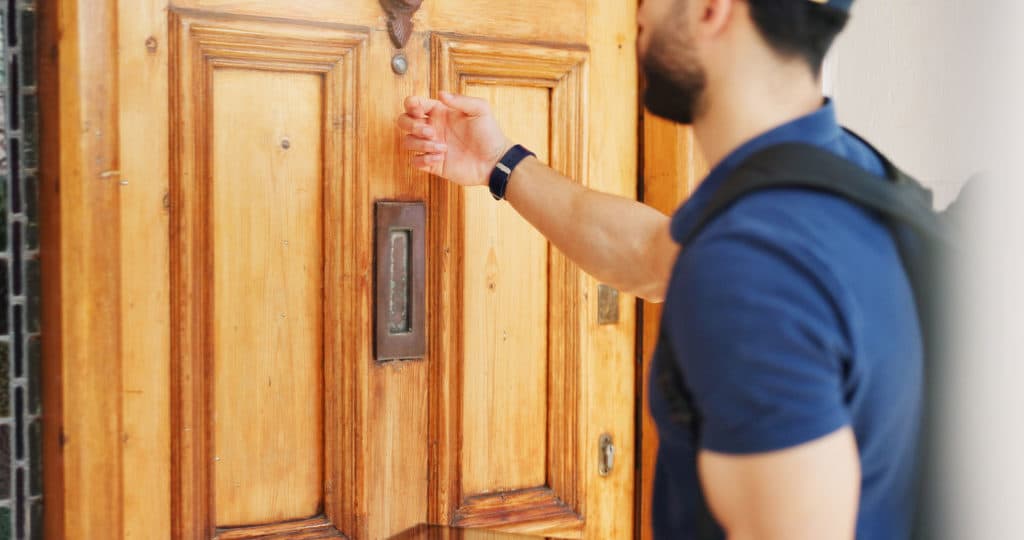Making amends is part of the 12-step program in Alcoholics Anonymous, specifically in steps 8 and 9.
It goes as follows: “Step 8: Made a list of persons we had harmed, and became willing to make amends to them all,” followed by “Step 9: Made direct amends to such people wherever possible, except when to do so would injure them or others.”
If you’re at this step or planning to follow a 12-step treatment program, congratulations—you’re on the right path of your recovery journey! This article explains what you need to know about making amends, with examples to help guide you.

Table of Contents
What Does “Making Amends” Mean?
To put it simply, making amends means acknowledging past wrongs and taking steps to repair the damage caused by those actions.
Addiction can make a person act in destructive and compulsive ways, causing them to lie, manipulate, neglect, and/or cause emotional or physical harm to themselves or others.
Making amends involves taking full responsibility for one’s behavior during and after this period, both through actions and words. The goal is to mend past hurts and foster personal growth, healing, and a sense of accountability.
What’s the Difference Between Making Amends and Apologizing?
Making amends is more than just apologizing, though apologizing is part of it. It’s rebuilding trust, correcting a mistake, and improving the relationship with the person you hurt. It’s recognizing that you did something wrong and actively changing your behavior for the better.
Apologizing is only the first step in taking responsibility. A bigger part of it is demonstrating a commitment to making things right and restoring trust through actions.
Types of Amends
People in recovery often struggle with steps 8 and 9 because substance use disorder often comes with destructive behaviors and actions. It makes people do and say things they otherwise wouldn’t without the influence of drugs or alcohol, and these actions often hurt the people around even if inadvertently.
Addiction is often labeled a “family disease” because it affects not only the person struggling with addiction but also everyone in their close circle. Family members may attempt to “fix” the problem and get sad, frustrated, or upset when their efforts don’t seem to make a lasting difference, fracturing relationships and causing emotional distress.
For many people, making amends can be an increasingly difficult task. It requires a great deal of humility, self-reflection, and emotional vulnerability—aspects that get buried under the weight of feelings of guilt, shame, and pride.
And when the mistakes you’ve made are so vast, knowing where to start or how to repair relationships can feel impossible. To make it more manageable, support groups divide making amends into four categories:
Direct Amends
Making direct amends is perhaps the hardest type of making amends because it involves confronting the person or people you’ve harmed.
Those who participate in long-term recovery programs often begin making direct amends early on because it involves opening up a conversation about their addiction and the impact it has had on themselves and others. But as mentioned earlier, making amends isn’t just about saying sorry and acknowledging past mistakes. It’s also about making it up to the person you’ve hurt.
For many, it’s tempting to make amends as soon as possible to “get it out of the way,” but it’s advisable that you take your time to prepare yourself first. Rushing into the process without fully understanding the harm caused or without being emotionally and mentally ready can lead to even more hurt—for both you and the person you’re trying to make amends with.

For example, if you reach out to a family member to apologize, you need to understand the full extent of your wrongdoings without minimizing what happened or trying to justify your behavior.
If a family member pushes back or reopens past wounds, you need to be prepared to sit with that discomfort without becoming defensive or shutting down.
You also need to be ready for the possibility that the person you’re making amends to may not be ready to forgive you or may not want to engage at all.
And, of course, you have to follow up the sincere apology with real solutions; ways to make things right and show that you are committed to change.
Here are some examples of direct amends:
- If you borrowed or stole money during your drug or alcohol addiction, you could offer to pay back the money.
- If your addiction led to lying or hiding the truth from a loved one, you could fully confess to the lies and explain the reasons behind them without making excuses and committing to being honest moving forward.
- If your addiction caused you to neglect your spouse, children, or family members, you could express regret for not being there when they needed you and actively spend quality time together moving forward.
- If you took or stole personal items, you could return those items or purchase a brand new item and apologize for taking them in the first place.
- If your addiction caused you to engage in destructive behaviors, you could make amends by admitting to a treatment center or doing counseling to work on the behaviors and showing a consistent change in your actions to the people around you.
Indirect Amends
There are cases in which reaching out isn’t viable (such as when a loved one explicitly told you they didn’t want to see you or is afraid of you) or causes further harm (such as when reaching out may trigger trauma or put them in an unsafe position). In these situations, you can indirectly make amends by:
- Addressing destructive behavior like anger issues by attending anger management courses and managing your emotions so you don’t cause the same hurt to the people around you.
- If you’ve harmed an ex-spouse or friend, you could reach out to your ex-in-laws or the friend’s parents to express your remorse for how your actions may have affected them.
Symbolic Amends
Sometimes, the person you want to make amends to has passed away or you’ve completely lost contact with them and have no way of reaching out. You can make amends by:
- Writing a letter detailing all the harm you’ve caused, taking full responsibility for your actions and how you’ll do better in the future.
- Donating around the same amount of money you might have spent making monetary amends to the person you’ve wronged.
- Volunteering for a cause that was important to the person you’ve wronged, and making efforts to make a difference in that community.
- Praying or visiting the grave of someone who has passed away and talking to them as though they’re still with you.
Living Amends
Living amends involves making ongoing, positive changes in your life as a way to demonstrate accountability. It’s about showing through your actions that you’re committed to doing better, making things right, and becoming a healthier and more responsible person. For example:
- Attending support groups and actively showing that you’re working on not repeating the same mistakes.
- Volunteering or supporting causes that help those impacted by addiction as a way of giving back for the harm you’ve caused.
- Staying true to your word if you’ve lived a life breaking promises or lying.
- Rebuilding relationships by being the best spouse, parent, or friend you can be to the person you’ve wronged during your addiction.

How to Start Making Amends
If you’re ready to make amends to the people you love, follow these steps:
Step 1: Make a List of the People You’ve Wronged
Compile a list of all the people you’ve wronged or mistreated through the course of your substance abuse.
In detail, write everything you’ve done that caused them pain. Don’t skip details; just because you want to forget doesn’t mean those you’ve hurt have. Acknowledge the full extent of the pain or damage you caused, whether it was emotional, financial, or physical.
Step 2: Apologize Sincerely
Your apology doesn’t have to be long or drawn out. Sometimes, a simple and sincere acknowledgment of your wrongdoings is enough.
What matters most is the honesty and humility behind it.
You could say, “I know my actions hurt you, and I’m truly sorry. I take full responsibility for what I did and am committed to making things right.”
Step 3: Take Responsibility
Saying sorry isn’t enough—you have to take responsibility for your actions and feel genuine remorse over what you’ve done. Don’t invalidate the other’s feelings by saying something like “I’m sorry you feel that way” or making excuses about your mental state at the time.
Step 4: Ask What You Can Do to Make Amends
Beyond making amends for your actions through addiction therapy or counseling, it’s important to actively ask the people you’ve harmed what you can do to make things right.
There’s no shame in asking, and it’s okay not to know the answers right away. You want to show the people you’ve hurt that you’re not just assuming what’s needed but that you’re open to their perspective and willing to meet their needs.



